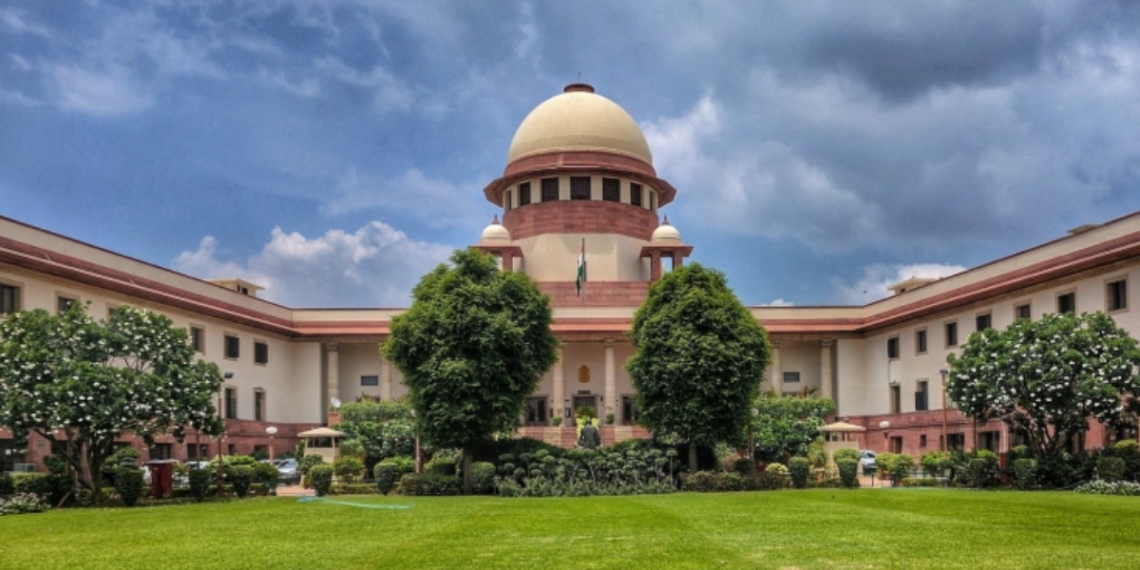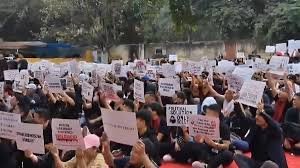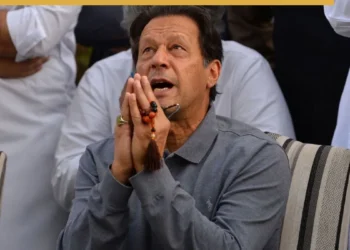A crucial ruling from the Supreme Court today asks the ECI to broaden its accepted document list for Bihar’s electoral roll update, challenging the exclusion of common IDs like Aadhaar.
By PC Bureau
New Delhi, July 10, 2025 – Delivering a big jolt to Election Commission of India’s (ECI) credibility, the the Supreme Court of India asked the poll watchdog on Thursday to consider Aadhaar cards, Voter ID cards (EPIC), and ration cards as valid documents for verifying citizenship during the ongoing “Special Intensive Revision” (SIR) of electoral rolls in Bihar.
A bench of Justices Sudhanshu Dhulia and Joymalya Bagchi emphasized that the ECI’s previously issued list of eleven acceptable documents on June 24 was “illustrative” and not exhaustive.
“Therefore, in our prima facie view, since the list is not exhaustive, in our opinion, it will be in the interest of justice, the ECI will also consider the Aadhaar card, Electoral Photo Identity Card issued by the Election Commission and the ration card,” the Court stated in its order. However, the Court clarified that this directive does not automatically bind the ECI to include a person’s name on the rolls solely based on these documents, retaining the ECI’s discretion in the final decision.
The Court has listed a batch of petitions challenging the ECI’s decision for further hearing on July 28, 2025, directing the ECI to file a counter-affidavit by July 21, 2025.
Fundamental Democratic Concerns Raised:
The Supreme Court underscored the profound implications of the petitions, noting that they raise “an important question which goes to the very root of the functioning of the democracy in the country—the right to vote.”
READ: Deverakonda, Prakash Raj Among 29 Booked in Betting Scam
The bench identified three primary questions at the heart of the matter:
- The very power of the ECI to undertake this “Special Intensive Revision.”
- The procedure and the manner in which this power is being exercised.
- The timing and the compressed timelines of the exercise, especially given that Bihar elections are due in November 2025.
Kudos to the SC for bestowing serious attention to the issue of special Intensive revision of the electoral rolls of Bihar. The ECI was threatening to exclude the majority of the voters by insisting on their producing documents like birth certificates etc which the majority of…
— Prashant Bhushan (@pbhushan1) July 10, 2025
Senior Advocate Gopal Sankaranarayanan, appearing for one of the petitioners, provided the bench with the background of the issue. He explained that the Representation of the People Act provides for “intensive revision” (a de novo revision) and “summary revision” (an updation) of electoral rolls. He asserted that the ECI’s current “Special Intensive Revision (SIR)” in Bihar is unprecedented in Indian electoral history and is not recognized by the Act or its Rules.
Sankaranarayanan highlighted that the ECI’s June 24 order for SIR specifically targets individuals enrolled after 2003 and shockingly excludes Aadhaar and Voter ID cards from its list of 11 acceptable documents for proving citizenship. He argued that summary revisions have been regularly conducted in Bihar, including as recently as January 2025, thus questioning the basis for this additional, “special” revision. He also referred to judgments that establish a presumption of citizenship once a person is included in the electoral roll.
Justice Dhulia initially questioned whether the ECI was acting within its constitutional mandate, stating, “They are doing what is provided in the Constitution right? so you can’t say that they are doing what they are not supposed to?”
Justice Dhulia: After going through the documents, ECI has pointed out that the list of documents for verification of voters include 11 and is not exhaustive. Thus IN OUR OPINION IT WOULD BE INTEREST OF JUSTICE IF AADHAAR CARD, EPIC Card and RATION CARD should be included… pic.twitter.com/j2aeNiwgDg
— Bar and Bench (@barandbench) July 10, 2025
Sankaranarayanan, while agreeing that the ECI has the power to revise rolls, contended that the manner of exercising this power was arbitrary. He argued that for an intensive revision, house-to-house verification is typically conducted, but for the SIR, an “arbitrary cut-off of 2003” has been imposed, creating an artificial distinction not permitted by the Act.
Justice Dhulia acknowledged that there might be a “logic” behind the 2003 cut-off, perhaps related to the first computerization of rolls, but stressed that the petitioners could still challenge that logic. He reiterated that the challenge was not to the ECI’s power under Section 21 of the Representation of the People Act, but to the manner of its exercise.
READ- NER Gender Gap Widens: Nagaland, Mizoram Lead, Manipur Lags
Justice Bagchi intervened, pointing to Section 21(3) of the RP Act, which grants the ECI discretion to conduct special revisions “in such manner as it may think fit.” However, the counsel argued that this discretion was being exercised arbitrarily, particularly by disregarding Aadhaar cards, which are recognized under the principal Act.
Justice Dhulia affirmed the Court’s intention to seek an explanation from the ECI on this exclusion: “We will ask them (ECI) why Aadhaar not accepted.” He noted that “Mr. Sankaranarayanan says under the principal act, Aadhaar is considered” an acceptable document.
The proceedings underscore the Supreme Court’s commitment to safeguarding the right to vote and ensuring that electoral processes, even those undertaken by the ECI with statutory discretion, adhere to principles of fairness, legality, and transparency, especially in the run-up to elections.













